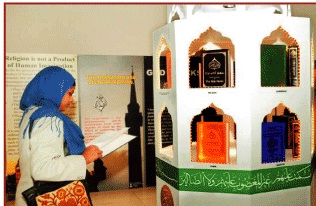The following is research published today, from MEMRI’s Special Dispatch Series and TV Project. Inquiry & Analysis No. 759—India/Islamic Reform/South Asia Studies Project By: Tufail Ahmad* India's Darul Uloom Deoband, the country's largest Islamic seminary, is caught up in a major controversy after issuing a fatwa (decree) against celebrating birthdays, including the birthday of Islam's Prophet Muhammad. Established in 1866 in the town of Deoband in northern India, about 150 kilometers from New Delhi, the internationally renowned seminary, the second largest in the world after Cairo's Al-Azhar University, adheres to Saudi-backed Wahhabi Islam, opposing any practices that are seen as innovations in Islam. According to an Indian media report, the seminary stated in the fatwa that "Islam does not permit such a practice, which is a tradition of Western countries." The fatwa came in response to a query by a student of the Aligarh Muslim University (AMU) who asked if it was Islamic to celebrate the birthday of AMU founder Sir Syed Ahmed Khan. To read the full report, visit http://www.memri.org/report/en/0/0/0/0/0/0/5808.htm. Special Dispatch No. 4277—India/Islamic Reform/South Asia Studies Project At a recent seminar in New Delhi, a number of Ulema (Islamic scholars), prominent intellectuals and legal scholars discussed the relevance of Islamic Shari'a in contemporary times. The seminar, titled "Relevance of Islamic Law in the Contemporary World," was organized by the Islamic Fiqh Academy, an Islamic organization, on May 28-29, 2011. At the two-day seminar, a number of writers read their papers on the relevance of Islamic Shari'ain modern societies. Among those who spoke on the occasion was Justice J. S. Verma (not a Muslim), the former Chief Justice of India. Justice Verma urged the Islamic Fiqh Academy "to promote better understanding about Islam and Islamic law that would usher in an era of harmony, justice and equity in the country," according to an Indian website. According to the website, Maulana Khalid Saifullah Rahmani, General Secretary of the Islamic Fiqh Academy, spoke about misconceptions regarding Islamic family laws. It should be noted here that the Indian constitution allows Muslims to practice their religion, especially with regard to marriage, divorce, and inheritance. Rahmani argued that the Islamic Shari'a caters to the needs of all, not only Muslims. At the end of the two-day seminar, a declaration was issued by the Islamic scholars, which urged Indian courts to consult with Islamic Shari'a experts on Muslim issues. To read the full report, visit http://www.memri.org/report/en/0/0/0/0/0/0/5807.htm. Special Dispatch No. 4276—India/Antisemitism/South Asia Studies Project In September 2011, Ahmadiyya Jamaat India held what was to be a three-day exhibition, from September 23-25, on the Koran and Islam's message at the Constitution Club in New Delhi. However, the exhibit was closed down on the second day, following a strong protest by a group of Islamic clerics and Muslim legislators. The protesters' main arguments were that a distorted translation of Koran, especially the verses relating to the Prophet Muhammad and Jesus Christ, was distributed at the exhibition, and that followers of the Ahmadiyya Jamaat do not believe that Muhammad was the last prophet of God. In several Muslim countries, especially in Pakistan and Saudi Arabia, the Ahmadiyya Jamaat has been legally declared to be non-Muslim. The followers of Ahmadiyya Jamaat are pejoratively dismissed by Islamic clerics as Ahmadis or Qadianis – after the town of Qadian in northern India where the community's spiritual leader Mirza Ghulam Ahmad began his teachings in the 19th century. In Pakistan, Ahmadis are banned from referring to themselves as Muslims and are not allowed to use Islamic symbols and expressions. The clerics and protesters who forced the New Delhi police to shut down the exhibition also accused the ruling Congress party of India, the Israeli Embassy, and the governments of India and Israel of supporting the Ahmadi Muslims' religious campaign across the world. A detailed report following the cancellation of the exhibition in New Delhi, in the Urdu-language Pakistani newspaper Roznama Ummat, stated that "the Ahmadiyya Jamaat is trying to enhance their impact and reach among Muslims in India under the aegis of the Indian government and the support of the Israeli Embassy, and under which the conspiracy of the Koran exhibition was hatched..." To read the full report, visit http://www.memri.org/report/en/0/0/0/0/0/0/5806.htm. . 

MEMRI Daily: November 13, 2011
![]()
MEMRI | MEMRI TV | THE MEMRI BLOG | MEMRI ECONOMIC BLOG | JIHAD AND TERRORISM THREAT MONITOR
TURKISH MEDIA PROJECT | IRAN BLOG | THE MIDDLE EAST CULTURE BLOG| THE URDU-PASHTU MEDIA BLOG![]()


![]()





Controversy in India over Fatwa Against Celebrating Prophet Muhammad's Birthday

Darul Uloom Deoband seminary in northern IndiaIndian Islamic Clerics' Declaration Urges Courts in India to Consult with Islamic Shari'a Experts, Asks Madrassa Students to Study Contemporary Law

Islamic scholars at the seminar in New DelhiKoran Exhibition in Delhi Shut Down By Indian Islamic Clerics; Ahmadi Muslims Accused of Distributing 'Distorted' Koran

A visitor at the Koran exhibition in Delhi (image courtesy: Roznama Ummat)
Sunday, 13 November 2011
Posted by
Britannia Radio
at
16:30
![]()





















